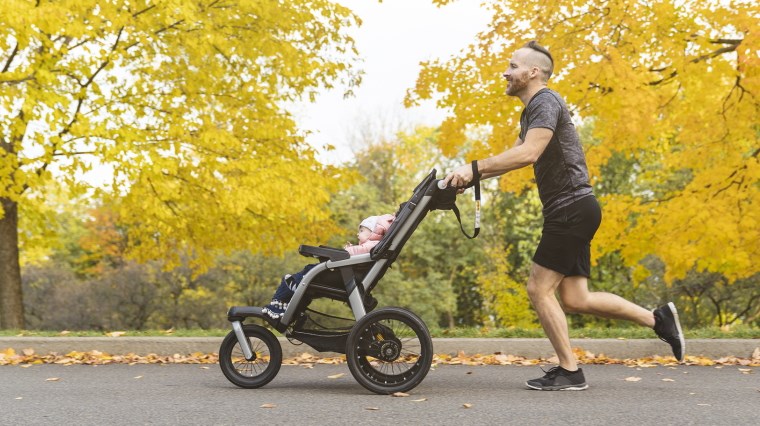How To Set Smart Fitness Goals For 2022

With December wrapping up and your hunt for Christmas gifts for the runner in your life nearly complete, setting a fitness goal may be at the front of your mind. Goal setting is a challenge – particularly over the last two years with COVID-19 lockdowns causing the temporary closure of gyms, postponing race days and requiring you to physically distance from your running buddy or group fitness class.
Rather than focussing on a vague idea for your New Year’s Resolution like ‘get healthy’, we discuss how to be honest and specific with yourself in what you want and why you want it, and guide you on how to set yourself up for success with realistic, action-oriented SMART goals that will not only stick, but inspire you.
We’re here to support you on your journey as you walk, jog or run into 2022 with our guide on goal setting and how to turn your health and fitness aspirations into reality.
Goal Setting & Motivation: What do you want and why?

Goals generally begin as an idea, thought or wish – “I want to lose weight”, “I want to quit smoking”, “I want to be a better runner”, “I want to be faster/stronger/more flexible”. First things first, ask yourself “What do I want?”.
Just as importantly, it’s important to ask why? Why do I want this for my body and mind?
If you want to lose weight or quit smoking, think about how this will improve your lifestyle – whether it’s to set a good example for your family and give you energy to keep up with your kids, or to breathe and move better to live fully and live well. You may want to turn your healthy values into reality for the long term to reduce your risk of lifestyle diseases and stay fitter as you age, especially as your metabolism slows in your 30s, 40s and 50s.
The why? could be as simple as committing to running or putting aside time to do rejuvenating yoga poses more frequently, purely and simply for the mental health benefits or to give you regular ‘me’ time doing something you love – and that is A-OK. Your goal doesn't have to be an epic leap. Making time for you and prioritising your mental health can be one of the most challenging things that we tend to put off – so goals like this that are seemingly simple can have momentous benefits.
Finding your motivation begins with your goal being naturally motivating – and not just motivating to anyone, motivating to you.
One of the secrets to goal setting is finding that feel-good, emotional connection to your goal. It can help to visualise yourself achieving that goal and in your mind’s eye soak in the feelings it represents. If the thought of achieving your goal cultivates feelings of warmth and positivity, you’re in the right place.
Whatever your goal is - simply by accomplishing a goal, however large or small, you improve your self-confidence and sense of self-empowerment – giving life to the “I can do this” mindset to fuel your aspirations for now and for the future.
How To Set SMART Goals
Now to get into the nitty-gritty of it. Whether it’s on a poster at your local gym or you’ve stumbled across it online, you may have heard the term “SMART” goals. This acronym is a breakdown of the criteria your goal should fulfil to make working towards it sustainable and the final outcome attainable.
- Specific
- Measurable
- Achievable
- Relevant
- Time-bound
Specific

Presenting your goal as a raw thought like the I want's mentioned above is the very first step, but here we change I want to I will. It’s important to translate the thought into a specific goal that essentially will allow you to put a label on to make it more tangible - bringing it into reality, rather than holding it in your mind as an unobtainable, airy dream.
“I want to be a better runner” may become “I will run 3 times a week for at least 30 minutes per session”. By “run” we don’t mean you have to run non-stop at full speed or without walking breaks. It’s OK to lower the intensity as needed to prevent burning out. The main thing is that you’re getting out there and moving at your own pace – which you can improve upon with time.
The competitive runner may need to take it up a notch and consult their personal trainer, but for everyday athletes you don’t need to overcomplicate things - the way to become a better runner is simply by running and running regularly. The rest (like learning to breathe better on your runs or improving your endurance) will for the most part come naturally.
Achieving goals heavily relies on being consistent, and by being specific in your goal setting you can sharpen your focus rather than your goal simply being a vague concept you can never truly ‘catch’.
Being specific shouldn’t be at the cost of flexibility. If you need to break your goal into shorter sessions to fit around work and family life to make it more achievable, then feel free to do so.
If we look at it in terms of losing weight, the goal may be “I will lose X kilograms”. It may not sound quite as short and snappy as the original thought – but the simple act of being specific has so much value. It fleshes out your goal and defines the parameters, which in turn makes it…
Measurable

Whether you’re ticking off the days you’ve gone for a run this week or watching the number wind down on the bathroom scale, now that you can measure your goal, you can track your progress. Being able to track your progress means you know that you’re getting somewhere – your effort is being rewarded with desired outcomes. This in itself is motivational and reinforces the fact that "I can do this".
It is important to track your goal by measuring progress in a way that works for you. The Inner Game 3 Month Performance Journal can help guide this process with prompts like a daily tracker and weekly planner for aspiring athletes, or you can make note of it in a fitness app or your own notebook.
In terms of fitness performance goals, a sports watch may let you track everything from your heart rate to running pace to know more about how your fitness evolves over time as you get closer to a new personal best.
For a weight loss journey alongside taking note of your weekly weight loss, it can be helpful to keep track of your day-to-day diet as a mindfulness and accountability strategy. Your weight loss goal could be broken into smaller, measurable objectives like “I will replace soft drinks for soda water 5 days a week,” if you find that drinking soft drink is a barrier on your weight loss journey.
As we touched on, tracking your progress can spark your motivation and feel like a mini ‘win’ every time you get closer to that numerical value – whether it’s a number on the scale, or the time it takes to run a particular distance in preparation for race day.
However, don’t be disheartened if unforeseen circumstances cause you to miss out on a training session or if the number on the scale isn’t what you hoped. There is naturally going to be fluctuations and obstacles on your journey to achieve your fitness goal. Do your best not to beat yourself up about it, know that it’s a part of the process and carry on.
Achievable

Measuring the achievability of your goal is a process of ‘looking inward’ and knowing yourself. Your goal must cater to you. Everyone is different and is starting at a different point in their health and fitness. It would be unrealistic, not to mention daunting, for someone with a stationary lifestyle up until this point to set a goal to win a marathon.
Similarly, demonising food by aiming to never eat junk food again is not a sustainable or mentally healthy way to lose weight. Your health and fitness journey should never be a punishment and guilt shouldn’t ever be the driving factor for you to achieve your goals. Even though a goal should be challenging and will have its obstacles, the outcome should make you feel positive and empowered.
Although we value specificity in goal setting, these goals plainly and simply put too high expectations and pressure on you. If you don’t honestly believe you can achieve it, your motivation will very quickly float out of your reach. Your goal must be sustainable and realistic. It’s important not to expect too much too soon, so break it down into smaller steps to tick off, be proud of yourself for what you acheive in every small win and accept that it's OK if you don’t get it right every time. Trying and trying again is a natural part of the journey.
We are all capable of achieving more and reaching further than our perceived limits. However, rather than aiming to win a marathon, a new runner could consider competing in a Fun Run or half marathon in the next 3-4 months, depending on their fitness level and by training a quantifiable number of hours/days each week leading up to it. Little steps guide the way to making long-term ‘bigger picture’ goals more achievable.
Someone trying to lose weight could make healthy food swaps or eat smaller portions of the snacks they love less frequently, more slowly and more mindfully to savour and appreciate the little things without steering off track of their overall weight loss journey – and your nutritionist and personal trainer can help guide you.
Your goal should be challenging but attainable. It’s also important to note that if a goal feels too small then achieving may not feel satisfying or worth your time, which in turn can steer you away from reaching your greater potential or cause you to undervalue your abilities.
You have to believe your goal is possible, worth your while and know that you are capable of achieving it.
Don’t be afraid to repeat an “I can do this” mantra to yourself to nurture the positivity associated with your goal. It’s important to be honest and kind to yourself as you commit to making gradual steps towards achieving it.
Relevant

You may look on your goal in terms of setting in motion long-term changes and healthy habits you want to see in your life (but on a smaller scale or time frame, working towards the bigger picture) or in terms of what could potentially be a one-off accomplishment to tick off your bucket list, like competing in a marathon (of course, you may love it so much that one marathon is just the beginning!).
Either way, it needs to be relevant to you. Think of it this way – goal setting is a way of self-care. Yes, so is taking a bubble bath to wind down after a run for immediate feel-good vibes, but goal setting requires mindful planning and preparation to set you up for success.
The path to achieving your goal should be personalised to you. If the rough outline of your goal is to lose weight and exercise more – choose exercises you enjoy – and yes, we are firm believers that enjoyment and exercise can go hand in hand! If you find doing kettlebell exercises and dumbbell exercises in your home gym or the weight training room isn’t for you, maybe lacing up in your running shoes and hitting the road is more your speed.
If you want to keep your running workouts fresh, you can take your fitness to the trails to keep your goal feeling ‘relevant’ not only for your physical health, but in keeping you inspired in your day-to-day life. Enjoying nature as your personal gym can elevate your mood and keep you motivated in every stride as you soak in the sights, sounds and embrace a new perspective - physically and mentally.
Of course, you may be juggling family and work life so it’s important to allocate time to make working towards your goal a priority. Reach out to your support network to help make this possible, like asking your partner or friends to look after the kids while you go for a run.
You can also try to be flexible and involve the kids in your training and run as a family or jog with a running pram to keep your goal relevant to your lifestyle and inspire your children for the future.
By sharing your goal and saying it out loud, your support network (friends and family) can help you stay motivated and accountable to function as your personal cheering squad from your first step to the finish line.
Time-Bound

Time and how you use it can make or break your chance of accomplishing your goal. Ignore time and its limits and you’ll find yourself procrastinating week after week, waiting for the perfect ‘Monday’ to jump aboard your goal journey. We’ve all been there before, with weeks flying by with the procrastination monkey on our shoulder – so don’t be hard on yourself. Instead set yourself up for success.
Remember our runner that wanted to run 3 times a week for at least 30 minutes per session? We can expand on this by saying “I will run 3 times a week for at least 30 minutes per session for the next 3 weeks.” Not only are you being more specific while staying realistic, but you are giving your goal an end date. Having a deadline gives you that extra ‘push’ to fuel your motivation and make yourself accountable. It also makes your goal feel attainable instead of in some far-off future you struggle to envision. In this case, you only have to commit to it for 3 weeks so it feels achievable, meaning you'll be more likely to lace up and stick to it.
Of course, within those 3 weeks you are cementing in a healthy habit and by the end, it’s likely it’ll feel weird not to run – so there’s no reason the end date needs to stop you. Keep running strong or you can even set a new goal to run further, faster or more frequently over the coming weeks – or get race-ready for a half marathon that’s 3 months away. Again, ensure the goal is specific, measurable and time-bound. As important as it is to set a goal, don’t let the conclusion of your goal limit you if you’re ready to take on a new challenge.
For a goal of weight loss, “I will lose X kilograms” could be expanded to “I will lose X kilograms in Y weeks”. A little sense of urgency – while still allowing you to take gradual steps - can make a big difference to building momentum towards your goal. Generally if you need to lose weight, aiming to drop roughly 0.5kg – 1kg per week is a healthy rate of weight loss but it’s important to seek the advice of your nutritionist on what is best for you.
Be realistic – setting too short a time frame is just as disheartening as setting too long a time frame and can be potentially unsafe when looking at your health and fitness. If you neglect the value of getting quality sleep, hydration and recovery, or try to rush towards your goal you may find yourself hitting a proverbial wall, losing motivation and experiencing the weird signs of overtraining.
It’s less about whether you win or fail week to week, and more about how you’re on the path of improvement simply by trying and trying again as you solidify your commitment to what you want.
The Wrap Up

You can dream about the future and reminisce on the past but the only time you actually have to work with is now. Rather than focussing on a New Year’s Resolution for the future, build momentum in the present – today - and in the final days of 2021 to end the year strong and in high spirits and set the foundations for a happy and healthy 2022.
Merry Running, happy goal setting and we’ll see you on the road in 2022!
